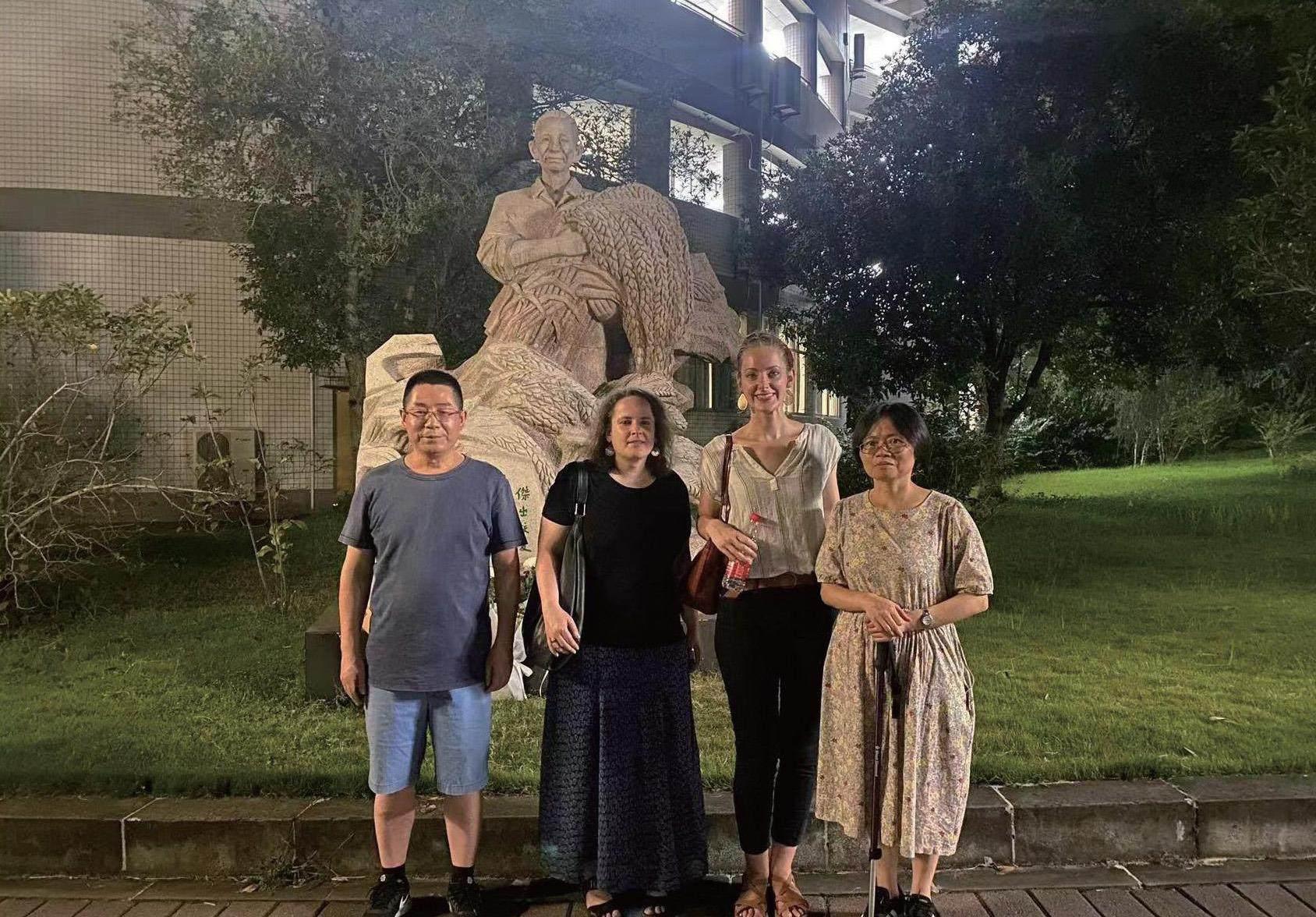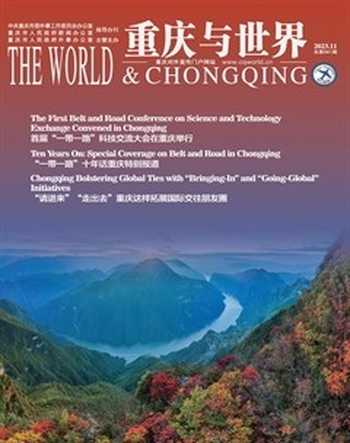外语学人的跨文化交流之旅
2023-12-25何武


2008年我在德國洪堡大学做访问学者,为了学习德语,我通过该校“语言双人自行车”项目(Language Tandem)结识了一名德国大学生,两人互学对方的语言,我也由此踏上了跨文化民间交流之旅。
我第一次接触语言交换活动是在德国。语言交换兼具文化传播与语言学习两大功能,来自不同国家的两人结伴进行语言交换,既是高效的外语学习模式,又是深入对方文化的交流模式。到目前为止,我已先后经历过至少五个语言伙伴,德语伙伴Julia,英语伙伴Nico、Edward、Kevin、Lisa。我们基本每周见面一次,每次聊天两个小时左右。第一个小时全部使用英语,第二个小时则全部使用汉语。我们既会漫步校园、City Walk、自行车骑行,边走边聊,也会在工作室、咖啡厅就着一杯中国茶或一杯热美式,用汉语聊聊孔夫子,聊聊碳中和,聊聊什么是我们正在参与并见证的中国式现代化。在这个过程中学到生活中最鲜活、最实用的外语,传播中华文化,了解异域文化。每一次交流都有着十分宝贵的意义,让我有一种文明互鉴、文化共通的满足感。在这个漫长的过程中,我们不仅相互学习语言,也深入了解对方的国情和民情,了解各自的民族文化,经过较长时间的交流接触,我们都成了代表各自母语文化的民间交流使者,带动了身边许许多多热衷于跨文化交流的友人,彼此建立起日渐深厚的情谊。
我与第一个语言伙伴德国姑娘Julia的故事值得分享。那年寒假,我从柏林去到她的家乡斯图加特,体验德国首都以外的风土人情。恰逢圣诞节,作为外语学习者,我在当地做了一次较为深度的文化观察。通过语言交换和一定的深度探访,我发现东西方文化之间其实有着很多相似的特征,是人类共通的文化。后来,Julia也曾两次到访中国,与我的家人一起包饺子,体验传统民俗。虽然停留短暂,但中国文化给Julia留下的印象非常美好。从今年起,Julia开始了她在中国的德语教师之旅。
重庆正在加快建设中西部国际交往中心,国际地位日益显著,国际化程度快速提升。在日新月异的现代化新重庆,已经涌现出越来越多的外语学习者、旅游者和国际工作者,重庆市民出境旅游和从事国际交流活动也越来越多。经常听到身边有朋友说,希望能够重新进入大学课堂,再去学学外语。我建议阅读一些外语原版书籍,听听外语广播,结识一个语言伙伴,既能学好外语,又能做一个体验感满满的文化交流使者。
本文作者、译者:
何武,西南大学外国语学院教授、英语系主任
Cayla Ham,西南大学外国语学院美籍教师
A Foreign Language Teachers Personal Experience in Cultural Exchange
Translated by He Wu and Cayla Ham
In 2008, I went to Humboldt University of Berlin as a visiting scholar. In order to learn German, I was enrolled in the universitys Language Tandem service. Being paired with a local college student as a language partner, we were able to reciprocally learn a foreign language from a native speaker. And since then, Ive embarked on my journey as a personal cultural messenger.
It was in Germany that I met language tandem the first time. Language tandem plays well both for cultural exchange and language learning, in which two persons from different countries pair up and learn the foreign language from each other. This not only effectively and efficiently allows for language learning, but for cultural learning as well. So far, Ive cooperated with at least six language partners, including Julia from Germany, Nico from the U.K., Edward, Kevin and Cayla from the U.S., and Lisa from Cape Verde. We usually meet once weekly, and chat for two hours every time. The first hour is exclusively for English and the second totally for Chinese. We might be walking and talking on the campus or wandering through streets around the city; we might be drinking tea or coffee in a bar, talking sometimes about Confucius and Plato, sometimes about climate change and carbon neutrality, and particularly often about the Chinese-style modernization we are witnessing and experiencing. In this way, both of us could get a good teacher of the target language, learning from each other the fresh and most practical expressions, we could learn about different cultures, and we could have our own cultures better understood by others. Every meeting has its precious meaning, helping us to mutually have a better understanding of the civilization and the day-to-day life between cultures. During the course, we do not only learn each others language, but we also learn about the country, people and culture related with the language. And with frequent and friendly contact we have gradually become ambassadors representing different cultures, contributing to a better understanding between different nations. And many of our friends from both sides have started similar relations and built friendships.
The experience with the German girl, Julia (my first language partner), is worth a special account. At the time of 2008 winter vacation, I visited Julias hometown -- Stuttgart -- to learn about Germany outside of its capital Berlin. It happened to be Christmas time, so as a foreign language teacher, I could observe how the local people celebrate their most important festival. With language exchange and deeper connection, I find that Eastern and Western cultures actually share many similarities; after all, we all belong to the human race. Julia had visited China two times thereafter, excitedly learning to wrap jiaozi with my family and tasting Chinese traditions. The two short-time stays at China must have left beautiful impressions on Julia. From this September, she has come to Chongqing in order to work in China as a German language teacher at Southwest University.
As an important international exchange center in western China, Chongqing has been gaining its international prestige day by day. Its rapid development and modernized conditions are attracting more and more students, tourists and workers from abroad, and the amount of local people traveling abroad keeps rising faster year by year. Many of my friends have claimed that they want to go back to college to learn English. I suggest they read some favorite English books at home, hear some English radio programs on the way to and from work, talk regularly with a fixed language partner, and then they can learn the language more easily while being an accomplished cultural messenger at the same time.
